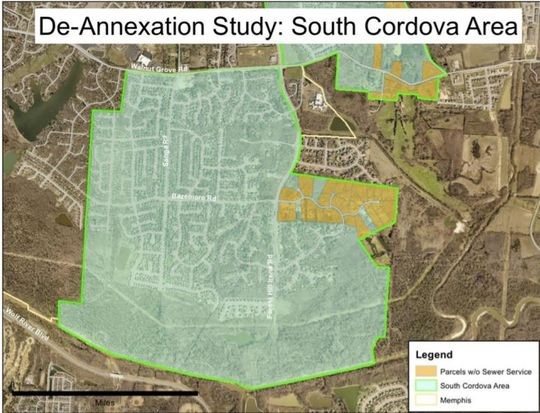The history of American politics demonstrates that positions that seem unconventional, even outrageous, when first broached have a way of becoming the norm with the passage of time — and sometimes not much time at all.
Think “Defense of Marriage Act,” now blink your eyes and think “Marriage Equality Act.” Even simpler: Think “Bruce,” don’t waste time with blinking and now think “Caitlyn.”
Though there was a time when the political left was responsible for most innovations (think 1960s, sit-ins, or even Social Security), the initiative where change is concerned seems to have shifted over to the right. Or at least to some mutating middle.
On the urban scene — and not just in problem-plagued Memphis city government — the idea of de-annexation may be finding its time. A bill to that effect got a trial run in the General Assembly last year, and it’s sure to take another bow in 2016.
Now you find the phenomenon of three city council candidates running as a ticket on that idea — which seemingly originated with suburban conservatives, but coupling it with such street-populist and Mempho-centric ideas as saving the Mid-South Coliseum and restoring pension and benefit levels for city police and firefighters.
The three are Jim Tomasik, a veteran of Libertarian Party politics; Lynn Moss, who admits to being Republican; and Robin Spielberger, whose politics are more amorphous. The trio of council candidates (Moss, Super-District 9, Position 2; Tomasik, District 2; and Spielberger, Super-District 9, Position 1) held an open-air meet-and-greet/fund-raiser Saturday at Lost Pizza Company on Poplar (site of the old Ronnie Grisanti’s Restaurant).
Their slogan (on a sign alongside a downtown-skyline graphic) indicates the ambivalent appeal of their position. “Right for Memphis/Cordova,” it says, and the fact is, sentiment for de-annexation seems to have just such a divided appeal. Recently annexed suburbanites (Moss and Tomasik are Cordovans) want independence (though they might settle for autonomy); meanwhile, a growing number of Memphians, like Spielberger, are concerned about the high costs of providing services to the sprawling outer areas annexed in recent years.
Maybe these three are wasting their time (competing with well-financed traditional candidates is going to be a problem), and maybe they are pathfinders, and maybe they’ll even run competitive races. All that remains to be seen, and how it works out may tell us something about our future.
• The developing matchup in council District 5 involves more conventional candidates and enough conservatives and liberals to allow for intramural contests within the larger race itself.
Of the nine potential candidates who have so far drawn petitions, five have drawn the most attention, and, though the nonpartisan nature of city elections allows for a certain flow across party preference and ideological lines, those five divide into two groups, basically.
Dan Springer, a still-youthful veteran of government service and Republican politics, and Worth Morgan, an even more youthful insurance executive with family ties to elite Memphis business circles, are regarded as battling it out for the loyalty of conventional conservatives. (Morgan’s first-quarter financial disclosure showed upwards of $150,000 on hand; my friend Kyle Veazey of the Commercial Appeal may not like the term, but that’s a war chest.)
On the other side of the ideological spectrum, Mary Wilder, Charles “Chooch” Pickard, and John Marek, will be competing for the support of those voters who see themselves as progressives (a designation that has largely replaced “liberal” as a self-signifier).
All three have overlapping interests and platforms, with Wilder noted for neighborhood advocacy, Pickard for preservationist activity, and Marek for campaign management. Wilder and Pickard have been in the field for some time, while Marek, a longtime advocate of police reform and loosening of restrictions on marijuana, is poised to begin a serious effort.
Expectations are that a runoff is inevitable, with no candidate able to get an absolute majority as of October 8th. It seems almost certain that either Springer or Morgan will make the runoff, to vie against whoever predominates among the progressive trio. But it is not impossible that the two perceived conservatives, given the depth of their anticipated resources, will end up opposing each other.
It is less likely that the runoff will be drawn exclusively from the Wilder-Pickard-Marek aggregation, but that is possible.
The Rev. Kenneth Whalum drew a petition for a District 5 race, along with petitions for Super-District 9, Position 2, and mayor, but it’s now being taken for granted that he will end up in the mayoral field.
Colonel Gene Billingsley, Jimmie Franklin, and Jennifer James Williams, all of whom have drawn petitions for District 5 (Franklin has actually filed), have to be regarded as outliers, on the basis of the name-identification factor alone.
• At its meeting of June 3rd in Nashville, the Tennessee Ethics Commission met to consider several new penalties for alleged campaign-finance offenders and to reconsider several already assessed. One of the latter was a $1,000 fine imposed on then Shelby County Democratic Party chairman Bryan Carson last September.
As the commission recapped the situation last week: “Mr. Carson was assessed $1,000 at the September 17, 2014, meeting for failure to file the Statement of Interests. Mr. Carson has subsequently filed and appeared before the commission to explain the tardiness of his filing. After the discussion, Mr. [Jim] Stranch made the motion to reconsider and to waive the penalty as it was Mr. Carson’s first time filing. Mr. [Greg] Hardeman seconded and the motion passed 5-0.”
Carson — who ran afoul of his executive committee and the state Election Registry for his accounting procedures a few months ago and subsequently resigned his chairmanship — offered this explanation: “A few months ago, I learned that each candidate running for public must file a Statement of Interest and submit it to the Tennessee Ethics Commission. I ran for the Tennessee Democratic Party Executive Committee last August 2014 and did not know that I needed to complete a Statement of Interest which was due in September 2014.
“All candidates were required to complete another statement in January 2015, of which I completed and filed on time. Running to serve on the TNDP was my first time running for public office, therefore, that weighed heavily on the final decision of the Tennessee Ethics Commission.”
• Fresh from serving as host for a “Memphis for Hillary” rally held on Saturday in a Southeast Memphis storefront owned by her family, state Representative Raumesh Akbari (D-Memphis) is in Canada this week, guest of the Embassy of Canada, which selected her and seven other legislators from the United States for a week-long “Rising State Leaders Program.”
The program began in 2006 with the goal of facilitating understanding between the two neighbor countries on business, trade, and cultural matters. The 2015 program, focusing on eastern Canada, will take legislators to Ontario, Quebec, and Nova Scotia. It began on Sunday and will continue through Saturday.
Following the death of longtime legislative eminence Lois DeBerry in 2013, Akbari won a special election to represent DeBerry’s District 91 House seat in the Tennessee General Assembly. She was easily reelected to full term last year.
A member of the House Criminal Justice Committee and Subcommittee, Akbari also serves on the House Education Instruction and Program Committee, where she closely monitors the effect on Memphis public schools of various state programs. She has sponsored several pieces of legislation designed to safeguard the structure of Memphis schools during a period of rapidly imposed innovations at the state level.
 Maya Smith
Maya Smith 

 Greg Cravens
Greg Cravens 